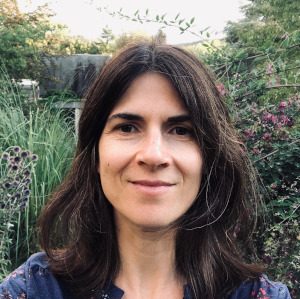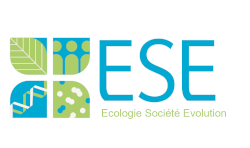
Emmanuelle Baudry
Position: Professor
Detailed position: Professor University Paris Saclay
Team: Ecological Processes and human Impact
Contact details:
Laboratoire Écologie, Société et Évolution – IDEEV
Bureau 2109 Bât. 680 – 12, route 128
91190 Gif Sur Yvette
Tel: +33 (0)1 69 15 56 91
Fax: –
Email: emmanuelle.baudry (at) universite-paris-saclay.fr
Research interests
Keywords: Urban ecology, conservation biology, evolutionary ecology, behavioral ecology, evolution of personality
In recent years, my work has been mainly in the field of urban ecology. I am particularly interested in the conditions for maintaining biodiversity and associated ecosystem services in peri-urban areas. Moreover, since the protection of biodiversity in urban areas requires the involvement of citizens, I am also interested in the relationship that urban people have with biodiversity.
Dynamics of biodiversity and ecosystem services during peri-urban development.
With C. Bessa-Gomes, E. Bonnaud, F. Chiron, C. Hanot, F. Hulot, S. Karolak, Y. Levi
At present, urbanization is one of the main anthropogenic pressures on biodiversity. Since 2014, we have been developing a project to understand the dynamics of biodiversity and ecosystem services during peri-urban development. In parallel, we are monitoring the evolution of the biodiversity of the Saclay Plateau and its associated ecosystem services, as well as the anthropogenic pressures on the territory, in particular the contamination of the environment by pollutants and changes in land use. The aim will be to understand and model the relationships between anthropogenic pressures, biodiversity and ecological services in order to develop tools to promote coexistence between biodiversity, urbanization and agricultural activities.
Interest in nature in a context of urbanization
With C Bessa-Gomes, M. Levé, AC Prévot
Paradoxically, cities could play a significant role in preserving nature, both by promoting the development of natural spaces of various sizes within cities, but above all by combating the disconnection observed between city dwellers and nature. The animal and plant species present in cities could thus be an excellent opportunity to promote the “reconnection” of urban dwellers with nature (Prévot et al. 2011). Our project aims to describe and understand how the French interest in nature is structured. It is based on a questionnaire produced using the ELIPSS (Longitudinal Internet Study for Social Sciences) system.
Interface TERRIories and Urban BIOdiversity: the Saclay Plateau
With R Mélot, S Darly, C Petit, D Spaak, P Frileux, AC Prévot
The TERRIBIO Saclay project focuses on the analysis of urban biodiversity and cultivated as a vector of social representations and as an object for local public action. The research will be carried out on the Saclay Plateau, a territory marked by a strong anthropisation dynamic and which presents important challenges in terms of coexistence and use of urban spaces and open, agricultural or semi-natural spaces, and biodiversity. The project will take into account a plurality of scales of analysis, both from the point of view of social sciences (sociology, geography, ethnology) and life sciences (ecology, agronomy). The project associates a multidisciplinary team in SHS (sociology, geography) with a collective of researchers working in ecology and at the interface between SHS and life sciences (ethnoecology, environmental psychology)
Evolutionary ecology and conservation biology: study of squirrels in France
I also collaborate with Jean-Louis Chapuis and Benoit Pisanu on various projects on squirrels in France in the fields of urban ecology, behavioural ecology and conservation biology.
The red squirrel is a magnificent species emblematic of French forests but which is unfortunately threatened in the medium term in France, due both to the fragmentation of its forest habitat and the threat posed to it by competition with the tree squirrel species that have been introduced in our country. In partnership with the ONF, we studied the genetic structure of red squirrels present in France to determine if certain populations had specific genetic characteristics, and could therefore constitute priorities for conservation.
Urbanization is constantly increasing in France as well as worldwide. In highly urbanized environments, urban parks could theoretically contribute to biodiversity conservation by providing resources and habitats for native species. But the populations living in these urban parks are generally small and isolated, which threatens their survival in the medium term. We conducted genetic and demographic studies of the red squirrel population in Parc de Sceaux (92) to determine whether this population, isolated from other populations by the urban environment, was viable in the long term.
The Korean squirrel is a ground squirrel native to Asia that has been sold in France as a pet since the 1960s and has become naturalized in several forests, including the Ile de France region. We are studying a population living in the Paris suburbs to determine the consequences of the introduction of the Korean squirrel on biodiversity and human health. We are also studying this population as part of an evolutionary ecology study to understand the origin of personality variations between individuals in the same population. Indeed, chipmunks in the study population have significant personality differences: some are shy, while others tend to take risks. We study the selective value associated with each personality type to understand what are the evolutionary forces that sustain the personality variations observed in the study population.
Teaching
I mostly teach quantitative genetics, ecology, population genetics and evolutionary biology.
